We’ve all been there: scrolling through your instagram feed & seeing all those amazing shots of foreign places. People from all across the world living the dream. People who dare themselves to go on adventures abroad. What if I told you there’s just one thing that needs to change in order to achieve such a goal: you. Turn your can’ts into cans & your dreams into plans. I decided to start living the life I’d always imagined. Basically I realized that the instagram ‘she’ had become ‘me’ – never would I’ve imagined that MY life could look like this. If I’m able to pursue my dreams, so could you. What is holding you back?
In this post I’ll tell you all about how I became an expat in the Caribbean, living on Curaçao and how you can become one too.
When live hits you down, hit right back. That’s what I did nearly 2 years ago. After some major bummers I decided to turn my life around & to move to the other side of the world: Curaçao. For someone who had never left Europe before, you can imagine it holds quite the adventure. In only 3 weeks of preparations I made the decision, arrangements & hopped on a plane to this Caribbean paradise.
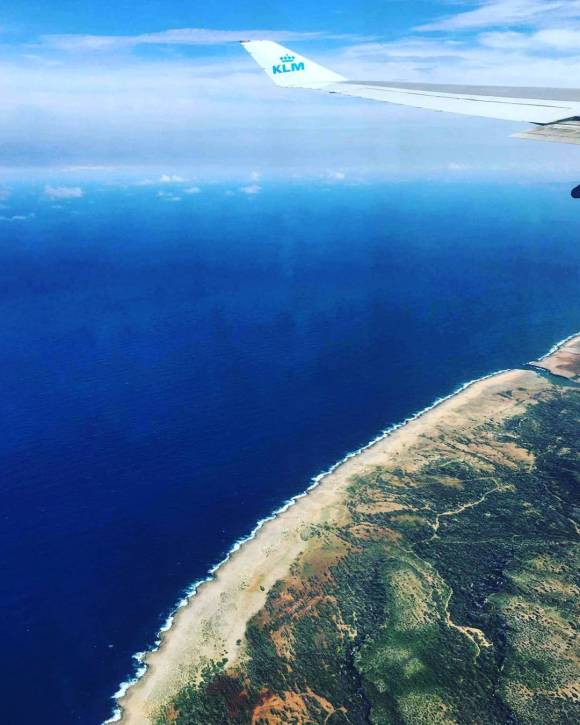
Why should you move to Curaçao?
One of the main reasons people move to the Caribbean would be the weather. It’s always hot – around 30º C , even during it’s annual raining season. The second reason to pick Curaçao over the other islands in the (Dutch) Caribbean is that it is the biggest one of them. Which means there is more to discover. Third, the languages. Locals speak 4 different languages fluently: Papiamentu, Spanish, English and Dutch. Big chance you can understand each other in one or multiple languages.
Next up: the laid back ambiance. Even tho you’re coming here to live your life, you’ll always have the feeling you’re on a holiday. It might be the nice weather, the famous Happy Hours or the tropical vibe around you. Beaches, cocktails.. spots full of tourist or the more relaxed places where you can take a break from all of it.
Another important feature of this island are it’s locals. They match with its weather: they’re a warm type of people. Very welcoming & friendly. Curaçao has an incredible island vibe, which means you don’t have to stress & you can just take it slow.
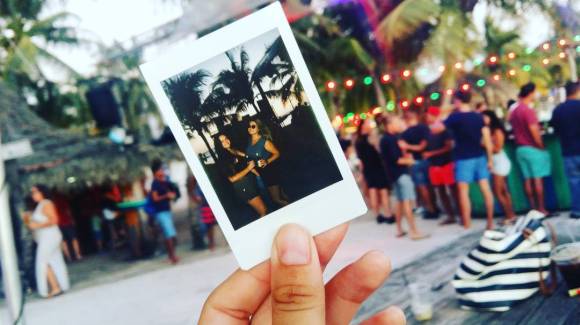
Moving to Curaçao: the preparations
Please note that I have a Dutch passport, and by moving to an island in the Dutch Caribbean my preparations could differ from yours if you’d emigrate from a different country. Please keep in mind you’ll need additional paper work in order to get your permit.
Job hunting
The first thing of importance would be getting a job. You don’t need to have saved all your life to be able to live here, however you should be able to take care of yourself with a regular income. On Curaçao you can always find work in hospitality. In my search for a job I looked on Facebook pages that promoted job openings or simply googled what type of restaurants or hotels are nearby the areas I’d fancy myself living.
I applied by sending e-mails containing a CV and a personal motivation letter. In my experience it is better to always give it a try & show your enthusiasm, even if the company ain’t advertising for new employees. From the 12 applications I send, I received 7 invitations, on which 2 were very kind of hiring me on the spot. Most will ask you to stop by for an interview while you’re on the island, and if that works for you, great! I however find it more convenient to have a job upon arrival, so you’re more prepared and know what to expect in order to plan your budgeting.
Note: incomes on Curaçao are low. But if you start with a minimum of 1600 guilders a month, you should be able to sufficiently get around. The longer you work for one employer, the bigger the changes are you’re salary will grow in time.
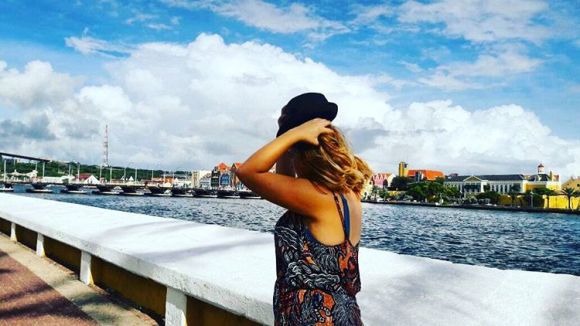
A place to call home
When you know what & where your job is gonna be, the next step would be finding a place to live. I moved here when I was 21 and at that moment I felt comfortable by starting out in a student house. It’s a good way of instantly meeting new people on the island – and a rather cheap way of living.
I was so excited for everything, I did not keep in account for the risks it may hold. You never know with what kind of people you’re ending up with. I’m always as optimistic as possible – seeing it as another great adventure. Unfortunately, the start of my own shared house experience was not a success – bad luck with the roommates. But when you’re already here on the island it is so much easier to find a new place for yourself. In my second month I got my own apartment.
From there I moved to a compromise : having my own studio within a student compound. No direct roommates but you aren’t quite alone either. Perfect way to meet awesome people – I had the bonus of meeting someone with whom I rented our own house with garden & our two adorable pups. As far as living on Curaçao goes – not that bad. Shows that even with a less fortunate start, if you are open to it, it will only get better.
A lot of times people do get fortunate and love their student houses. They have the time of their lives. You just have to see what works for you.
My advise: go with your guts. Make sure you’re choosing a place that is in a nice & safe neighborhood, as well on a easy accessible spot to get to work. You either rent / buy a car to get around or locate yourself within walking distance from where you need to be. A very good neighborhood for students is the Pietermaai District. De Nieuwestraat is a street full of student housing, apartments or studio’s. It’s in the center of Willemstad and close by cute hangouts & bars, the busstation etc. It’s the part of the city that’s the most alive.
Getting around
Whether you do or do not need to have a car is an ongoing discussion. I have survived nearly 2 years on this island without driving a car – I’m finishing up my driver lessons as we speak & have my exam next month! – so yeah a car doesn’t have to be a priority. It does make living here a lot easier tho. Getting to a decent supermarket does require you to have a vehicle so once in a while.
My advice: if you can drive a car, make sure you get yourself one. Not able to? Just be creative: hop on a bus, rent a scooter instead or be a bit more sporty and walk – during the daytime! – to your go-to spots. Just make sure to consider this when choosing a place to live.
More info about Curaçao beaches & how to get there –> Life’s a beach: the Curaçao ‘Vitamin Sea’ guide
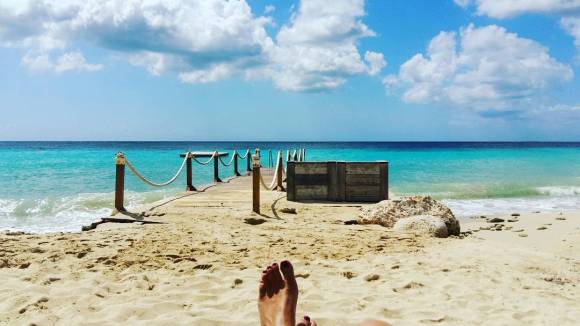
The paperwork
To become an expat you do need to do your homework. Here’s a list of things you’ll need in order to get through the customs:
- Passport – with validation for at least 6 months
- Certificate of Birth – make sure you’ll request an international certificate
- Certificate of Conduct – no longer than 3 month old
- An exit ticket – within 6 months
- International Insurance Papers
- Extract of the population register – proof of no longer residency & Copy of an entry in the Registry of Marriages
Book a Round-Trip
Let’s address some of the above. In order to get through the customs at Curaçao you’ll need a two way ticket. Or, as I did, a ticket out of the Dutch Caribbean – so not to Aruba/Bonaire/St. Maarten etc. I booked a separate ticket to Venezuela. This is a waaaaaaay cheaper option than booking Round-Trip ticket! The fact that I never planed on taking that flight doesn’t matter.
Why do you need this proof of exciting within 6 months? The only way of getting your Sedula (your permit/Visa) is to apply for it in person on Curaçao. So by entering the country you do not have a citizenship and are therefore being dealt with as a tourist. Tourists from the Netherlands have a maximum of 6 months per year they’re permitted to be on Curaçao.
Note: People with a different nationality need a ticket of proof of exiting within 3 months.

International Insurance
The moment you ‘unsubscribe’ from your former address you’re local insurance is no longer valid. Make sure you have an international insurance upon the day you emigrate until you can get your local one after your permit has been approved. To play it save I would recommend an insurance with the duration of at least 3 months.
To round it up, these are the last things you should double check before hoping on your plane:
- Passport photo’s – you’ll need quite a few for the paperwork on Curaçao
- Check your ongoing subscriptions – newspapers etc.
- Stop by your bank and check if your card is set on working in the Caribbean, and while you’re at it you can register your new address.
Check, check, double check? Great! Put yourself on that plane and fly sky-high – off to your Caribbean adventure.
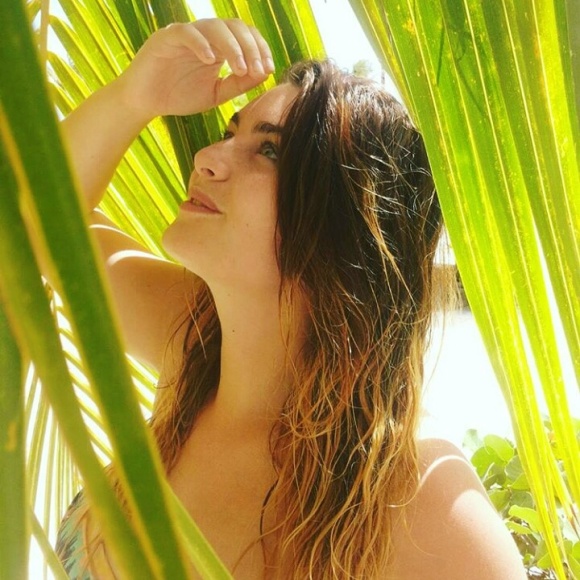
What’s next?
Yay! You’ve landed on Dushi Korsou, the beautiful island of Curaçao. Take a cap to your new residence and sleep off your jet-lag. The following can get your attention afterwards:
- Your VVR – Dutch: Verklaring van Rechtswege – this is your working permit
- Sedula – Your local ID-card, aka your visa/permit to stay as a resident
- SVB – Dutch: Sociale Verzekeringen Bank – Local Insurance
- GGD – Optional if your employer requires this: it’s a test on hygiene.
Just a few things to take care off. I’ll take you through these steps as I encountered them 2 years ago. Some of the papers you now can request online, but you still have to go to the offices to receive them yourself.
VVR
First thing you’d like to have arranged is your VVR. You’ll go to the immigration desk in Punda – it’s the glass building across from the McDonald’s – and ask for the payment form. With this form you’ll go to the Giro Bank and make the additional payment. Or you pay upfront digital, depends on what works best for you. It’s quite a lot – 615 guilders – but don’t let it discourage you! Prices can differ, depending on what your requesting. If it is just for working within the holiday permitted stay it’s a different price then if you’re planning on staying beyond that.
After doing your payment you return to the immigration desk and request your VVR. For this you bring your receipt of the payment, your passport, certificate of birth, certificate of conduct, copy of an entry in the Registry of Marriages, your Employers Declaration & a previous filed in form of the VVR agency. Be aware that you can only apply for a VVR when you have found a job. You’ll receive a proof of administration, which allows you to start working already. It’s not your VVR yet! You’ll have to come back for that in a couple of weeks.
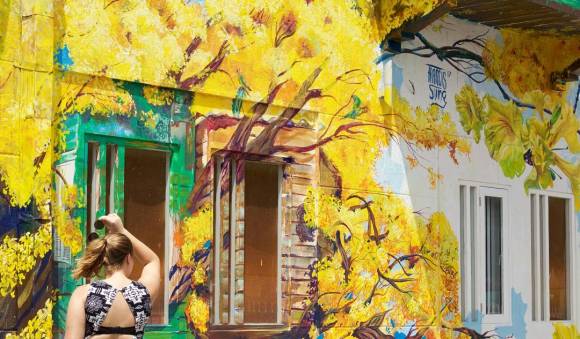
Sedula
After you collected your VVR – and enjoyed your first couple of weeks on the island – it’s time to stop by Kranshi. This is the Civil Registry of Curaçao, where you apply for you Sedula. It is located in the Otrobanda district, which is on the other side of the Queen Emma Bridge.
First thing you do at Kranshi is register your VVR. You can walk right in, grab a number and wait your turn. Come prepared & bring your papers with you. You’ll need your passport, certificate of birth, extract of population register – the proof you unsubscribed from your previous address and your VVR.
Next up is making the appointment for your Sedula. You’ll get a number to call or an web adress to make your appointment. Most times this appointment is 3 weeks ahead. On the day of your appointment you’ll only have to bring your passport and 15 guilders. Wait your turn, let them make a splendid picture of you and your Sedula is being printed while you wait. Congratulations! You’re officially a Curaçao resident!
With the Sedula in your wallet you can come and go off the island as much as you please. This of course within the validation time of your Sedula – mine is valid for 5 years.

SVB
Let’s fix your insurance. On Curaçao your basic insurance is being payed for you by your employer. You only need to stop by the SVB office in Otrobanda to get your insurance card. Bring your Sedula & a paper from work – they’ll know which one you need. You pick a doctor & that’s it. You’re basic insurance has been fixed.
GGD
Last thing is optional, and only if your employer requests it from you. The GGD – it’s a certificate of knowing your hygiene. It’s mandatory if you work in a restaurant or in other sectors that make you work with food / hygiene. It’s a easy test you have to make on annual base and cost 50 guilders. Most employers pay this or part of this fee.
Update: Curaçao keeps innovating & improving their systems in order to make it a bit more easier. Some of the above papers you can now request online!
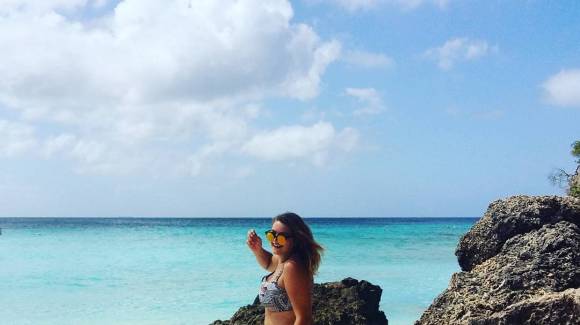
Live your Caribbean dream
After all the bureaucratic arrangements you’re finally where you want to be: living your Caribbean adventure. Looking back at all this makes me realize how quick you can make a life changing decision work. It only took me 3 weeks from making this unbelievable decision to getting on board & being flown to paradise. Sure, you do need to do your homework & make the mandatory arrangements. But what else would you expect from becoming a expat?
Most important thing would be to enjoy the ride. Whatever you do or whatever your motivations are, never forget to celebrate life. You can live the dream of your own makings. If only you are bold enough to dare yourself in making it happen.




37 replies on “Become a Caribbean expat: Start living the Curaçao Dream”
This article is so enlightening and very useful for purpose. Great evergreen content. Very beautifully and meticulously curated. You are an incredibly talented writer. I am so curious about Curacao as a city itself.
Looking forward to further posts.
LikeLiked by 1 person
Thank you so much for your kind words! As a just started writer, this really means a lot.
I’d say stay tuned, I’ll definitely post more Curaçao related content – now from a local perspective.
LikeLike
Informative and detailed post with perfect guidelines!!!
LikeLiked by 1 person
Thank you! Really hope this will help others who are thinking of moving here – or simply inspire them that having their life changing dream also can be pursued if they would just try.
LikeLike
Offcourse Yes. We just need to take one step!
LikeLike
Wauw Nikki . Geweldig geschreven en heel duidelijk !! Wat heb jij je droom laten uitkomen en je leven een mooie draai gegeven . Meid blijf genieten en leef je leven en geniet . Groetjes Gea
LikeLiked by 1 person
Hi Gea, dankjewel! Dat komt helemaal goed 😁❤
LikeLike
Hey! This is awesome! Go you for living your dreams! I miss traveling and 2018 should be a good traveling year for me, but this post was great. Between my wife and myself we have been to over 50 countries, and it’s not that expensive. The main thing like you said is to change the cannots to cans, and sets some goals and go after it! Good stuff! So happy for you!
LikeLiked by 1 person
Hi! Wow, 50 countries – that’s amazing! Love your thoughts on the matter, everything is possible if you just dare to take action for it. Setting goals is a great step in the right direction. Thank you for commenting!
LikeLiked by 1 person
Wow! This is such a brave and awesome thing to do! 💕 Go you! I love how detailed and helpful this post is too. Great post and thank you for being such an inspiration 😘 xx
Bexa | http://www.hellobexa.com
LikeLiked by 1 person
That really means a lot ❤️ Thanks for the love!
LikeLike
Wow! What an amazing experience. Thank you for the insight and great information. Those beaches though!
Ashleigh | Ashleigh Renay
LikeLiked by 1 person
Thank you! I know right, the beaches here are like from a movie or magazine, couldn’t believe my eyes that the ocean is REALLY that blue. Even after living here for almost 2 years the beaches still amaze me – Vacation feelings all over again.
LikeLike
This sounds like such an exciting adventure. Thank you for sharing with us!
Britt | http://alternativelyspeaking.ca
LikeLiked by 1 person
Thank you for giving it a read! ❤️
LikeLiked by 1 person
This sounds amazing. Hope you have the most incredible time and love to hear more about what you do x
LikeLiked by 1 person
Thank you so much! Yes life here is great, such a different lifestyle than back in Europe! Ah great – in that case I’ll write more Curacao related content ❤
LikeLiked by 1 person
I’m not bold enough 😂 At least not at this current moment 😛 Well done to you! All the best 😊
LikeLiked by 1 person
There are so many possibilities! I’m sure that if you set your mind to your goals, you will achieve them. Thank you and all the best!
LikeLiked by 1 person
This is such informative and interesting content. Curacao is actually on my list of places to visit!
LikeLike
This is such informative and interesting content. Curacao is actually on my list of places to visit!
LikeLiked by 1 person
Thank you! Oh you should – it’s one of Caribbean’s most colorful destinations!
LikeLike
Wow, I can’t believe you moved to such a cool place! I want to do stuff like that but let the “cant’s” get in the way too often. I need to start going after my dreams like you have. Thank you for sharing such awesome tips. I’m going to have to use those once I convince my husband that we should move to a foreign country, haha! But those really are great tips that I’ll use when I’m traveling as well. Thank you so much for sharing!
LikeLiked by 1 person
Thank you for your kind words! I truly believe that when you put your mind to something, everything is possible. You don’t have to start by moving around to a foreign place right away – it can start with the small things. Just make sure to let us know when you do make a big move – would love to read about that!
LikeLike
This was very enjoyable to read, it’s so amazing to see that you took a chance and decided to go after your dreams, really motivates me aswell! 💕
LikeLiked by 1 person
Thank you so much! It really joys me to read that it motivated you ❤️ That’s the whole reason I started blogging about my experiences in the first place!
LikeLiked by 1 person
GIRL be my damn best friend please you are my literal GOALS. To just up your entire life and go on this amazing adventure? You’re so bloody BRAVE! And you’re in the Caribbean? A dream. You’ve made it sound so accessible too….some more ideas to add to the dream pile 😉 xx
LikeLiked by 1 person
Wow, thank you! That right there turned a giant smile on my face – thank you so much for your kind words!
LikeLike
I love your blog!! Motivates me to travel the world!! Curacao is definitely on my list of places to visit now, it’s amazing that you had the confidence to move there! Goalssss xx
LikeLiked by 1 person
Thank you so much! ❤
LikeLike
I like the sound of becoming a Caribbean expat! Great article and some really good advice. I may well see you out there x
LikeLiked by 1 person
Thank you! Who knows? Would be lovely!
LikeLiked by 1 person
Wow! What a very detailed post!
Nicky.
http://www.sincerelybalanced.com
LikeLiked by 1 person
Thank you so much Nicky!
With love,
Nikky
LikeLike
Love this post. I’m from Belgium and I actually thought of it when I saw some dutchies do it 🙂 LOVE the idea, and amazing that you took the leap! Thanks for sharing your experience 🙂
LikeLiked by 1 person
Thank you! Belgium is high in my to go list to be honest – might move there one day!
LikeLike
You are definitely a pro in this. Wonderful pictures taken! That city looks so darn dreamy!!
LikeLike